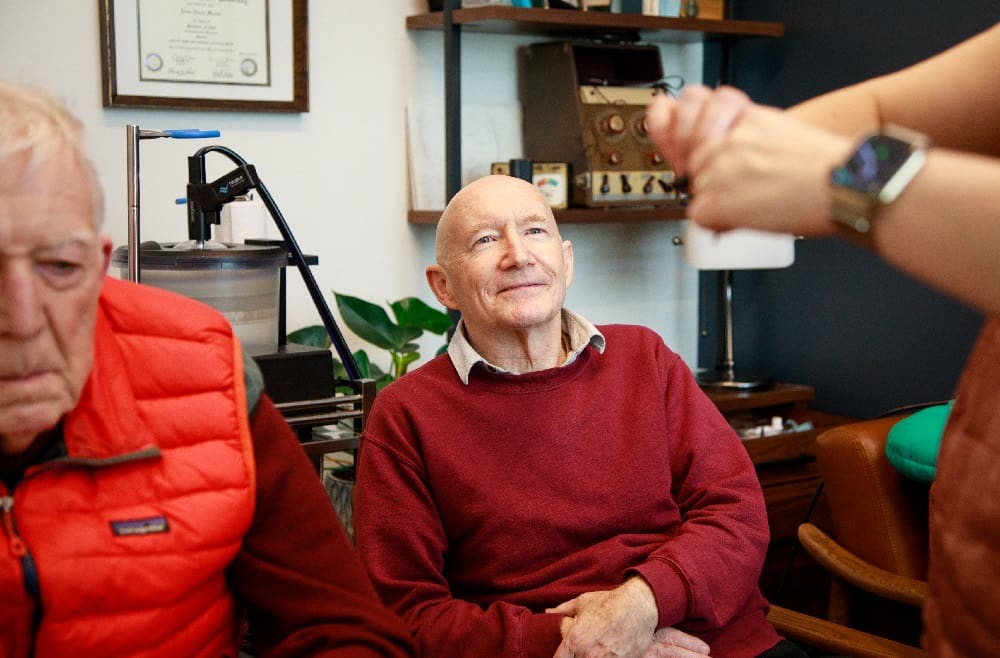2021-08-04
Jonathan Lipschutz Audiologist, M.S., F-AAA, Co-Owner
Last month’s article was titled 'Why are hearing aids so expensive?’, based on the premise that the question is fundamentally correct-that they are “so expensive”, i.e. too expensive. In this piece, I posit that the premise is actually incorrect. Not that quality hearing healthcare doesn’t cost a significant amount of money. It does. Over-the-counter (OTC) hearing aids won’t change that fact. For too many, it’s simply more than they can afford, as are so many other things that are out of reach for these folks. That’s not the fault of the hearing aid manufacturers (more on that later) or the providers of quality hearing healthcare. For many, the costs of quality hearing healthcare are simply more than they may want or choose to pay. That’s their choice. But the best choice is always the informed choice.
Contrary to how it’s portrayed, hearing healthcare is effectively structured like general health insurance, but with an upfront cost rather than spread out over time. When a person ‘buys hearing aids’, what they’re purchasing is years of hearing healthcare. The aids are sophisticated medical prosthetics fit (ideally by an Audiologist) to facilitate that care. They are paying for the audiologist's time, training, expertise and ongoing care. This is known as a ‘bundled’ model, the best model for patient care. The audiologist is bundling the hearing aids with years of ongoing care, at no further charge. Just like with your other health insurance, if there’s a problem, you don’t think twice to call for help because you’ve already paid.
In 2020, roughly 157 million people bought into their employer-based health care plan. Within those plans, the average monthly cost for a family was $1,779 ($21,348 every year). Even our best, most expensive, treatment care plan at $7890 (which includes professionally fit state-of-the-art technology and 5 years of timely, compassionate, comprehensive, expert care) averages out to just $131.50 per month over those 5 years, ~$4.32/day. Seems like a pretty fair price if you prioritize your hearing health, cognitive function and connectedness to your world. The compensation we earn as healthcare providers is commensurate with our expertise, education/training, years of experience and the fundamental high quality of healthcare we provide. $4.32/day for the best hearing healthcare available?
I do want to touch on the hearing aid industry itself too. I have worked for one of the major manufacturers (ReSound) and I’m currently a direct customer of them all. I can attest that they are one of the ‘good guys’. They produce incredibly sophisticated medical prosthetics that they wholeheartedly stand by and support. They truly want their products to consistently work for their wearers, and will go out of their way to help me help my patients. Every year, they spend millions of dollars on R&D into hearing loss and its treatment. In all of my interactions (Training, Technical Support, Production, Sales), they are attentive and eager to make sure the people using their products are consistently getting the most benefit possible.
Because of California’s Song-Beverly Consumer Warranty Act, better known as the ‘Lemon Law’, all hearing aids are dispensed on a trial basis. Meaning, manufacturer’s invest materials & resources to create hearing aids for patients only to have them returned for credit.
A complete loss for both the manufacturer and the provider (because we can’t charge separately for our time dispensing hearing aids). I might spend 7 hours, over several appointments, working with a patient and still not receive payment for that care! But we believe in the return law because it encourages people to seek out treatment when they might not otherwise. And also because we know what great hearing healthcare can mean for people.
So are hearing aids too expensive? Sadly, along with so much else many of us are blessed to be able to afford, for too many they are. But for many more, good hearing healthcare is certainly available and within their means. People need to prioritize that and make a choice to invest in their health.
https://berkeleyhearing.com/wp-content/uploads/2024/10/Discover-why-investing-in-professional-hearing-healthcare-is-worth-it.jpg
Jonathan Lipschutz Audiologist, M.S., F-AAA, Co-Owner






